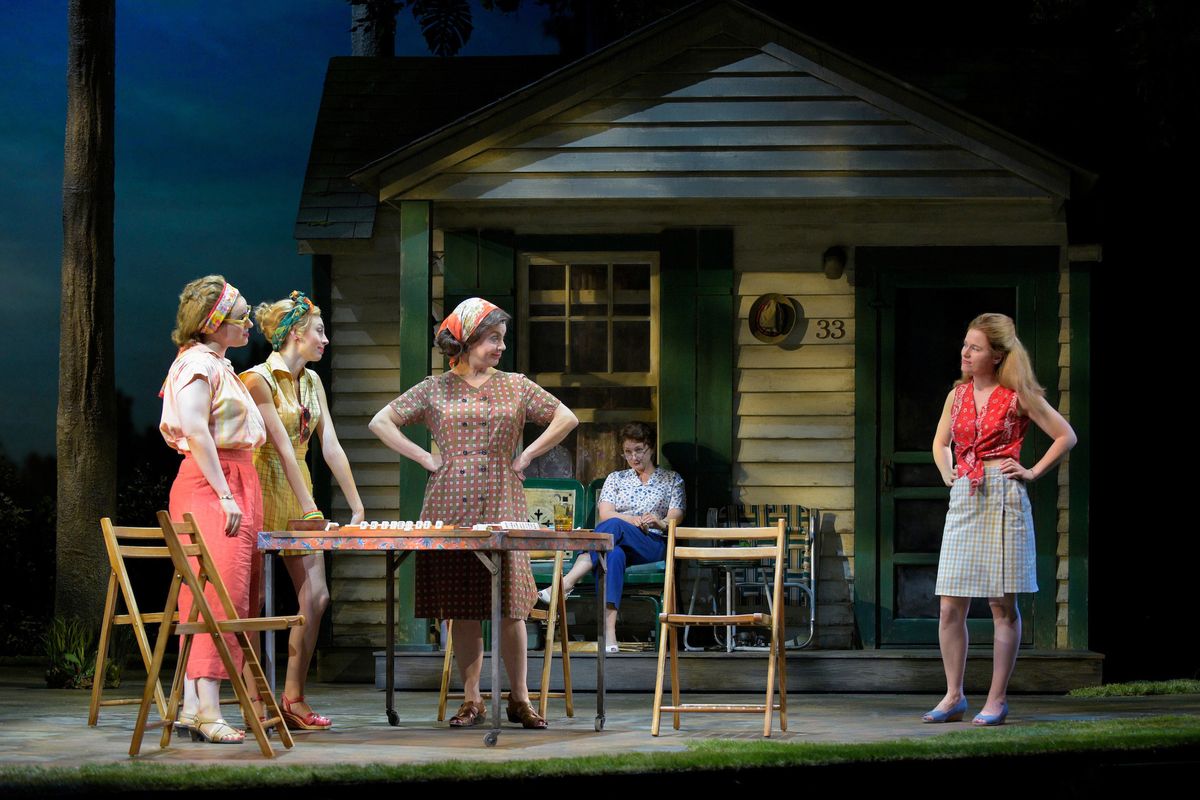The bungalow communities and resorts of the Catskill Mountains in upstate New York, also known as the Borscht Belt of the 1960s—where working-class and middle-class Jewish families would retreat together for the summer—is a setting ripe for drama.
The film Dirty Dancing was set in one of the higher-end resorts in the early part of the decade, and delved into how popular music was helping shape a new youth culture, and show the cracks in the conservative veneer of the decade prior. The 1999 film A Walk on the Moon, written by Pamela Gray and directed by Tony Goldwyn, showed us a different moment in a similar space: the upheavals of the summer of '69 as seen through the eyes of working-class Jews summering in the same fashion they would have been in the '50s. The tumult, and the sense of enormous change happening just beyond the bungalows, was enough to inspire housewife Pearl Kantrowitz (played in the film by Diane Lane) to question everything she accepted as unchangeable in her life, and open herself up to an affair with a traveling salesman one weekend when her husband couldn't make it out of the city.
Producers approached Gray about adapting her story for the stage, and Gray says she leapt at the chance. We now have the resulting, world-premiere musical A Walk on the Moon, which just opened at American Conservatory Theater. The shape and most of the details of Gray's original screenplay are intact—the personal dramas are bookended by Neil Armstrong's post-July 4th walk on the moon, and Woodstock a month later—but we now have a score by Paul Scott Goodman and a number of melodic, often enchanting songs to help tell Pearl's story and that of her daughter, Alison, whose own first-love story with a boy she meets at the camp serves as the innocent foil for Pearl's transgression.
Actress Katie Brayben is at turns feisty and luminous as Pearl, and the same adjectives could be used to describe Brigid O'Brien's performance as Alison, with O'Brien at times surprising the audience with the sheer power and versatility of her voice. Both actresses capture subtleties in their roles as well as embrace the broad strokes they must make in their musical numbers. Jeffrey Brian Adams is thoroughly likable as Pearl's husband Neil; and Jonah Platt as Pearl's hippie lover Walker, a.k.a. the Blouse Man who comes regularly to sell blouses to the housewives of the bungalows, is equally endearing.
The choices Pearl and Neil made when Pearl got pregnant with Alison at a young age lead them to a situation that for some might be untenable—and the uniqueness of Gray's story is that the outcome is nuanced and not predictable, and involves Alison judging her mother without understanding her own role in this history.
The set design by Donyale Werle is wildly impressive and transportive, with movable trees, a canopy of leaves, and a spinning, two-room bungalow that is exacting in its visual details.
A bit of the visceral romance and raw sensuality of the film gets lost in the translation to the stage, as does any sense of Pearl's deep frustration that leads her into the arms of a strange man. Perhaps there's something dissonant between what was a quiet story about sexual exploration and transgression in a pre-feminist moment when such things were more deeply taboo, and a musical which tends not to tell the story so intimately. Also there are multiple moments where songs, rather than flowing organically out of a scene, feel shoe-horned in where they don't necessarily belong.
Nonetheless it's a tidy plot with a pleasant ending that is tailor-made for musical theater, and Goodman's songs go a long way toward making this a potential hit. Especially good are Pearl's repeated anthem "Out of This World," sung to a far-off "Mr. Armstrong," and the very catchy "World Without Men," sung as a 60s girl-group number by the four housewives of the ensemble, including Pearl, to celebrate their weekdays without husbands.
The production feels nearly ready for Broadway, where it seems likely to head with this much investment, and its themes about love, commitment, and choosing between romance and stability are timeless. With a few missing strokes filled in, it just might transcend what is now, mostly, an entertaining diversion.
// A Walk on the Moon plays through July 1 at ACT's Geary Theater; get tickets at act-sf.org.
This review originally appeared on Opening Night SF.





















